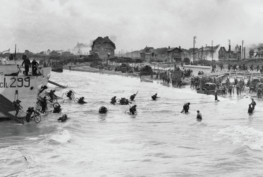Article by Gene Manuel
I received an honorable discharge after serving three years in the U.S. Army as a nuclear warhead specialist. Following my discharge, I attended the University of Kentucky on the G.I. Bill and earned a master’s degree in communications. Most of my career has been in the hospital environment. Starting with the University of Kentucky Medical Center as a Media Specialist and ending with the Veterans Administration Medical Center at Perry Point, Maryland, as Chief of Medical Media.
At the age of 57, I had enough federal service to retire. Although I loved playing golf three or four days a week, I knew something was missing in my life. I have always been interested in serving in some capacity in the ministry. I knew that I did not want to be a pastor or preacher, so my other opportunities were. One day I happened to read an advertisement in our local newspaper saying there was a need for volunteer chaplain assistants at our local hospital. The ad stated they would provide training for this position. I completed the required training and thus began my second career, volunteering one day a week as a chaplain’s assistant.
Since I have always enjoyed meeting and speaking with people, this position was well suited for me. It was not long until the director of pastoral care asked me if I would like to start training volunteer chaplain assistants. I did this for a few months and then was asked to represent the volunteer chaplain on the “Palliative Care Steering Committee.” Palliative care was a new word for me, but it is a fancy word for symptom management in patients with chronic illnesses.
The term palliative comes from the Latin term palliare to cloak or convert. Palliative care is care given to improve patients’ quality of life who have a serious or life-threatening disease, such as cancer. It is a care that addresses the person as a whole person and not just their disease. Palliative care focuses on quality of life rather than quantity of life.
I joined the Palliative Care team after serving on the committee for a year. The team consisted of a physician, nurse, social worker, and chaplain. Although 80 percent of hospitals our size have a Palliative Care Team, this was new to our hospital. I relinquished my volunteer status and became a part-time hospital employee. I started at 10 hours a week which quickly changed to 16 hours a week and then 20 hours. The need for pastoral care increased, and the opportunity to work as many hours as needed to meet the pastoral demands were granted.
Confucius said: “choose a job you like, and you will never work a day in your life.” My wife used to ask me if I was going to work. I would always reply, “No, I am not going to work. I will visit patients at the hospital”.
Although I am a palliative care team member, I can provide pastoral and spiritual support to other patients. While making my rounds, I frequently encounter patients who have served in the military. I felt I could provide the veterans with spiritual support and recognize and honor them for the sacrifices they made while serving their country. I started a program that I refer to as flag recognition for our veteran patients. If a patient is a veteran, I present them with an American flag and a flag representing their branch of service. What a blessing this has become not only for the veterans but for me as well.
Although I serve in many aspects of palliative care, God has given me the greatest gift to be present and provide spiritual support to family members having to decide to withdraw life support from a loved one who has no chance of recovering from a terminal illness. During my years as a chaplain at our hospital, I have had the honor numerous times to stand by the bedside with a family member and provide pastoral support when their loved one is transitioning into eternity.
As a palliative care chaplain, I normally only visit palliative inpatients. However, recently one of our care providers asked if I would see an outpatient of hers coming in that afternoon for treatment. I never turn down an opportunity to provide pastoral or spiritual care when possible. The patient shared with me some of the tragedies in his life and the sinful life he had lived. He asked if I had ever witnessed anyone leaving this life and entering eternity. My response was yes. As a chaplain, I have witnessed many individuals leaving this side and transitioning to the other side. He then dropped a bombshell on me. He said, “I know that I will shortly be leaving for the other side, and would you hold my hand when I make this transition.” Without hesitation, I said, “It would be an honor”.
“If you make the Lord your refuge, He will order his angels to protect you wherever you go.” PS. 91:9-11
Read more articles from VOM Magazine here: https://www.veteransoutreachministries.org/vom-magazine/





